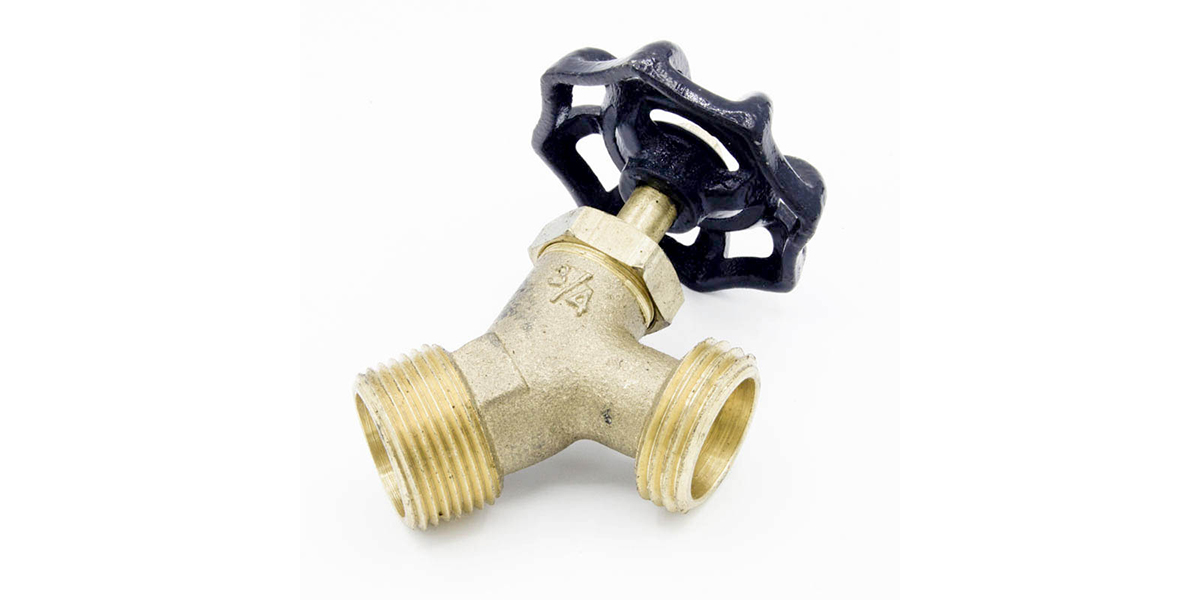If you’ve ever considered setting up a hose sprinkler system, it might seem convenient to hook it up to your garden tap and call it a day. But while using a sprinkler system from the hose bib may work in a pinch, it’s not designed for long-term use—and it comes with a whole list of problems. Before you commit to this DIY route, here’s what you should know.
Your Backflow Protection Isn’t Good Enough
Most outdoor faucets have a basic vacuum breaker—just enough to meet minimum requirements for hose use, but not nearly enough for a proper irrigation setup. That’s because a sprinkler system from the hose bib doesn’t offer the right level of protection against backflow. And backflow isn’t just inconvenient—it’s dangerous. If water pressure ever reverses, fertilizers, pesticides, and bacteria from your lawn could siphon right back into your home’s drinking water.
Professionally installed garden irrigation sprinkler systems mitigate this risk by using testable backflow prevention devices, like DCVAs (Double Check Valve Assemblies), which meet plumbing codes and keep your family safe.
Adapters, Timers, and Leaks—Oh My
When you build a hose sprinkler system, you’re relying on small plastic connectors, rubber washers, and hose splitters—all parts that wear out quickly and often leak. These parts aren’t designed for long-term outdoor exposure or underground use. Once buried, small leaks can go undetected for weeks or months, wasting water and damaging your landscaping.
Worse still, many people try to attach heavy timers or manifolds directly to the hose bib. Over time, the weight and water pressure can crack the faucet or pull the connection loose entirely. These kinds of issues are common with DIY sprinkler systems from hose bibs and are costly to repair once they show up.
Pressure and Flow Just Don’t Cut It
A typical garden hose is only ½-inch in diameter. That size might be fine for hand-watering, but it restricts water flow significantly when used for multiple sprinkler heads. You’ll lose pressure fast, which means uneven spray, poor coverage, and inconsistent results across your yard.
In contrast, garden irrigation sprinkler systems are built with ¾-inch to 1-inch lines to ensure optimal water flow—even across larger or multi-zone yards. If you’re relying on a hose sprinkler system to cover your lawn, you’ll likely end up frustrated with the results.
No Zoning Means Uneven Watering
One of the most overlooked issues with a sprinkler system from a hose bib is the lack of zones. Lawns, gardens, and flowerbeds have different watering needs. Without separate zones and a centralized timer, you’ll either underwater some areas or overwater others.
This is where garden irrigation sprinkler systems really shine—they allow for tailored watering schedules and even coverage across every part of your yard. A simple hose sprinkler system just can’t match that level of control or customization.
Thinking of Going DIY Anyway?
If you’re still planning to build your own garden irrigation sprinkler system, there are a few upgrades you can make to do it safely and effectively:
- Have a professional install a proper backflow preventer and connect a dedicated irrigation line instead of using the hose bib
- Use ¾-inch or 1-inch piping for water distribution instead of standard garden hoses
- Design irrigation zones and control them with an automatic timer
- Avoid vacuum breakers and opt for a testable DCVA to meet local code requirements
This isn’t a shortcut—it’s just doing it the right way from the beginning
Your Garden Irrigation Sprinkler System: The Bottom Line
It might be tempting to rely on a sprinkler system from the hose bib for convenience, but it’s rarely worth the risk. DIY setups often fail to meet code, waste water, and don’t deliver the pressure or precision needed for a healthy, evenly watered yard.
If you want a hose sprinkler system that performs like a professional setup, or you’re looking to upgrade to fully integrated garden irrigation sprinkler systems, it’s worth getting it done right the first time. You’ll get better results, avoid costly repairs, and protect your home’s water supply in the process.
For top-notch irrigation services, contact Naiad Irrigation to book an appointment.
Book a service or call us today @ 587-200-3994. We provide top-notch services from Irrigation Association-certified professionals.
